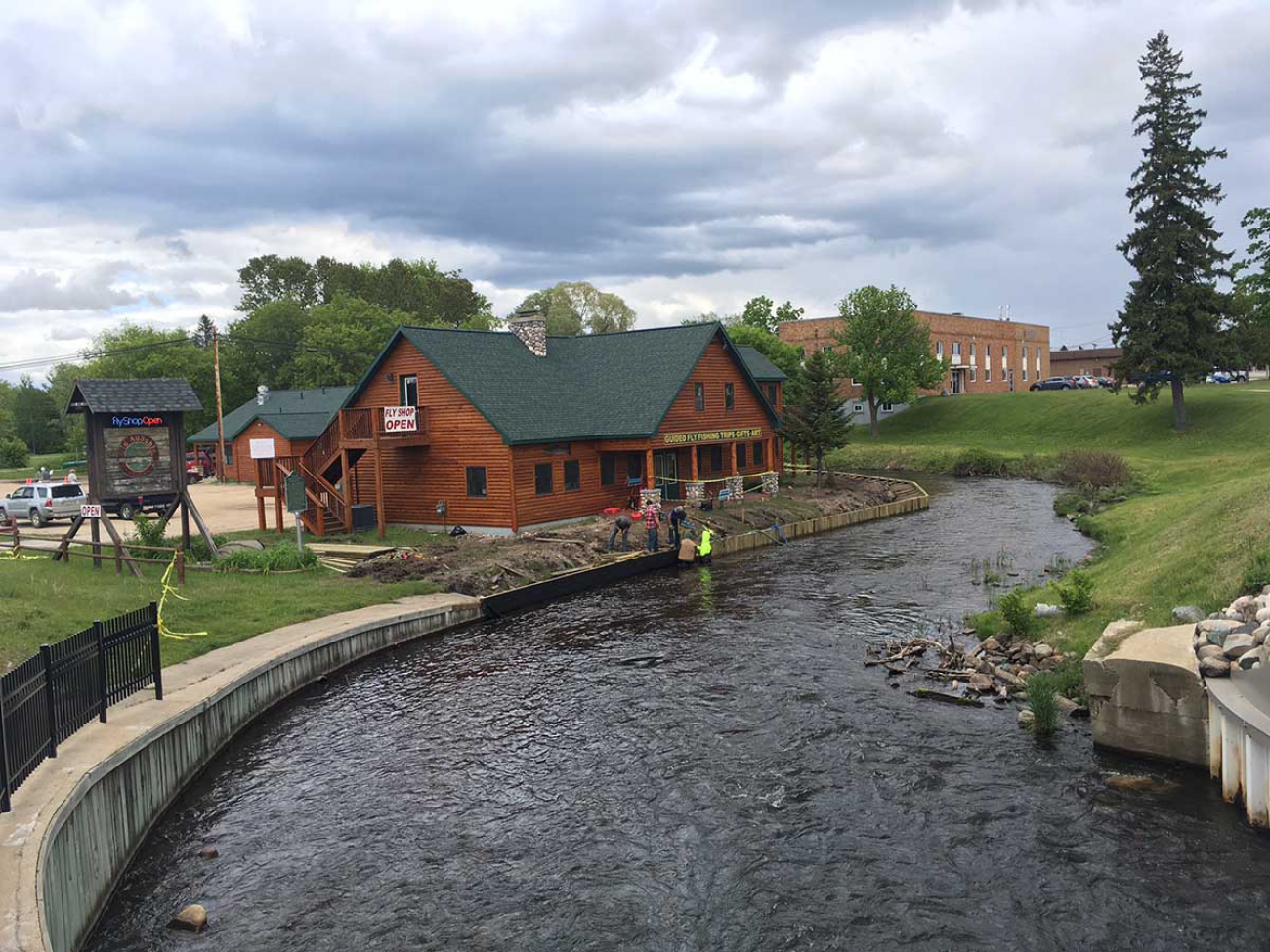Forestry company says it won’t do harm to trout fishing paradise

GRAYLING — Arauco North America says it wants to be a good environmental citizen when its forestry products plant opens near Grayling next year.
So far, that sits well with conservation groups in Michigan’s scenic River Country.
“We’re just being watchful,” said Tom Baird, president of Anglers of the Au Sable, an environmental group dedicated to protecting the river system.
Baird said Arauco executives were willing to quickly meet with several conservation groups, including Anglers as well as Trout Unlimited, to share ideas for setbacks from rivers and streams that feed into the Au Sable system.
MORE COVERAGE: Can a Chilean forestry company revive Grayling
MORE COVERAGE: Grayling dusts off downtown with brewpubs, galleries
If too much land is cleared too close to the river, Baird said, that could alter water quality and the river aesthetic (Disclosure: John Bebow, president and CEO of The Center for Michigan, which includes Bridge Magazine, is on the Anglers of the Au Sable board. He played no role in the reporting or editing of this article).
Baird said fishermen don’t want to stand in the way of a plan to create hundreds of jobs in the region. He said his group believes the company appears to be responsible and, so far, has no specific concerns about its Grayling plant.
“We know this is going to mean an expansion in the amount of wood taken from the area in terms of timber products,” he said, adding that future conversations with the company are likely as the factory progresses. “We’re being careful about what that means and being watchful about whether it causes any environmental or conservation concerns.”
Arauco has said it plans to build its factory on just 150 of the 640 acres of forested land it purchased. Company officials say they surveyed its site for any signs of the Kirtland’s warbler, an endangered bird species, and found none.
While Arauco will source much of its wood from Michigan forests, it won’t be a logging operation, said Jake Elston, the company’s North American operations vice president. The wood it takes from trees will be what he called low-value, meaning it will be wood byproducts left over after it’s turned into lumber.
About 40 percent of the wood products it uses will come from sawdust or shavings left over from lumber mills, Arauco said. The remaining 60 percent generally would be timber purchased from logging operations.
“We needed access to sustainably managed wood sources,” Elston said.
The bulk of the state’s forest land, about 60 percent, is privately owned, said Bill O’Neill, DNR’s forest resource division chief and state forester. The state manages about 4 million acres, with the federal government managing the rest.
State forests have been certified since the mid-2000s, meaning they’re considered responsibly managed, O’Neill said. For instance, trees must be regenerated if they’re harvested, and wildlife habitats and water quality must be protected.
Michigan has certifications from two main international certification bodies, the Forest Stewardship Council and the Sustainable Forestry Initiative.
The state has put up an average of 61,000 acres of wood for sale a year in recent years, O’Neill said. That is based on a statewide plan that outlines how much can be harvested and replanted annually. The wood is sold to the highest bidder.
The state grows at least twice as much wood than it uses, he said.
Much of Crawford County is forested today because soil conditions are sandy, left over from when glaciers receded, and isn’t suitable for farming, O’Neill said.
It’s also susceptible to wildfire. The tree species that grows best on the poor soil is jack pine, which naturally evolved to regenerate itself with fire, he said. The tree stand becomes more flammable the older it gets.
O’Neill said the goal is to harvest trees before fire strikes, so they can be replanted without being accompanied by a wildfire’s threat to the environment and public safety.
See what new members are saying about why they donated to Bridge Michigan:
- “In order for this information to be accurate and unbiased it must be underwritten by its readers, not by special interests.” - Larry S.
- “Not many other media sources report on the topics Bridge does.” - Susan B.
- “Your journalism is outstanding and rare these days.” - Mark S.
If you want to ensure the future of nonpartisan, nonprofit Michigan journalism, please become a member today. You, too, will be asked why you donated and maybe we'll feature your quote next time!

